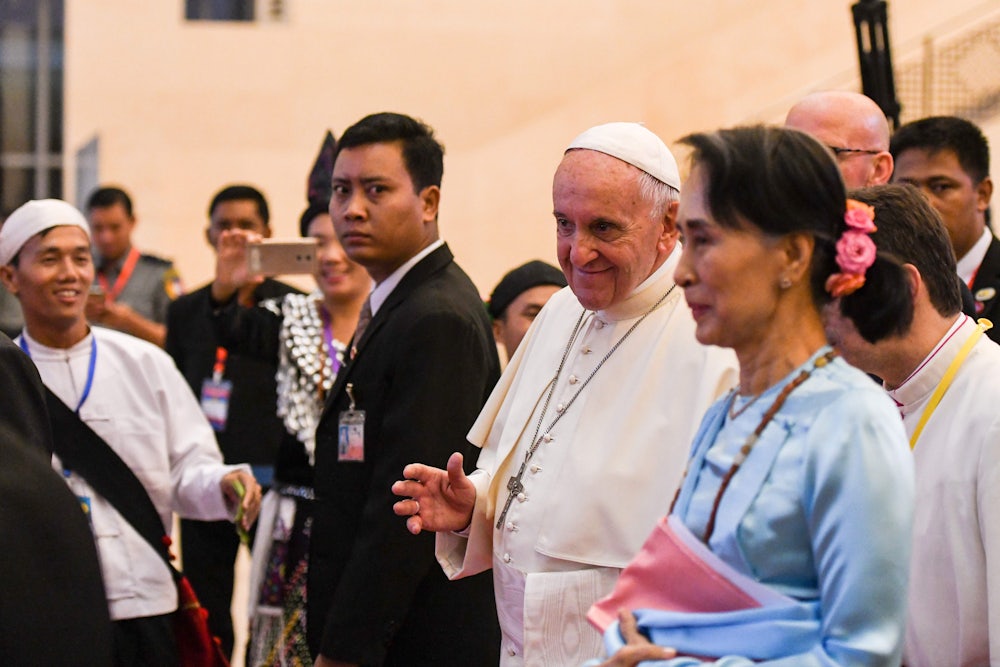The pontiff refused to address by name the Rohingya Muslims, the victims of an ethnic cleansing campaign at the hands of Myanmar authorities, during a visit to the country on Tuesday morning. Speaking alongside the country’s foremost civilian leader Aung San Suu Kyi, who has been widely criticized for her failure to condemn a brutal campaign that has been labeled by some experts as genocide, the pope merely called for “respect for each ethnic group and identity.”
While the Rohingya have been historically oppressed since the end of the colonial era, the latest bout of violence began in August, when an insurgent group called the Arakan Rohingya Salvation Army attacked a series of police posts across Rakhine state, where 1.1 million Rohingya once resided. The government launched a scorched-earth campaign in response, burning Rohingya villages to the ground and murdering and raping Rohingya civilians. Now, three months later, more than 600,000 Rohingya have fled, many of them to squalid refugee camps in neighboring Bangladesh, as Jason Motlagh reported for The New Republic this month.
Cardinal Charles Maung Bo of Myanmar had advised the pope ahead of his trip to avoid using the word “Rohingya” to protect Myanmar’s small Catholic population. But Tuesday’s silence from Pope Francis, who has been known to call out human rights abuses internationally, makes a statement of its own.
“Pope Francis’s talk of universal human rights, peace and dignity is little more than platitude,” law professor Penny Green told CNN. “If the Pope cannot even mention the name of those who have been most cruelly and comprehensively excluded then it says little for any moral pressure he was hoping to apply to Aung San Suu Kyi and the military regime she has aligned herself to.”
The fear is that as world leaders continue to ignore the plight of the Rohingya, described by a United Nations spokesperson as “probably the most friendless people in the world,” they may passively allow the Myanmar government to achieve its goal of wiping out the entire Rohingya population.
